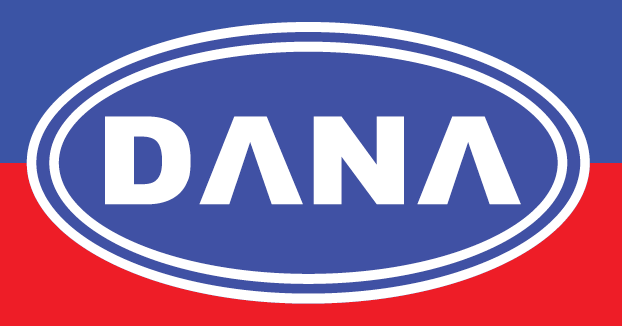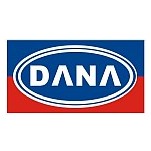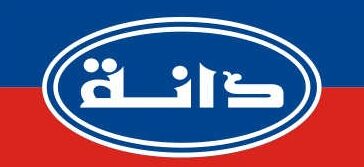Sandwich Panels Fire-retardant rating Class B2 per DIN4102
Sandwich panels are a popular construction material known for their durability, insulation properties, and versatility in various applications. In recent years, a growing concern for fire safety has led to the development of fire-retardant sandwich panels. These panels undergo rigorous testing to determine their fire-retardant properties and are assigned specific ratings based on their performance. One such rating is the Class B2 fire-retardant rating, according to the DIN4102 standard. This article aims to provide a comprehensive understanding of sandwich panels with a specific focus on their fire-retardant rating of Class B2 per DIN4102. By exploring the testing standards, benefits, applications, and safety considerations associated with Class B2 sandwich panels, readers can make informed decisions when selecting fire-safe building materials.

Advantages of Sandwich Panels
Sandwich panels have gained popularity in various industries due to their numerous advantages. Firstly, they are lightweight, making them easy to handle and install. This feature also reduces transportation costs. Additionally, sandwich panels offer excellent thermal and acoustic insulation properties, enhancing energy efficiency and soundproofing in buildings. They are also resistant to corrosion, impact, and weather conditions, making them long-lasting and low maintenance. With their versatility and aesthetic appeal, sandwich panels have become a popular choice for construction projects worldwide.
Understanding Fire-retardant Ratings
Importance of Fire-retardant Ratings
Fire safety is a crucial consideration in any building project. Fire-retardant ratings determine the level of resistance a material has against igniting, spreading flames, and releasing toxic fumes. These ratings help ensure the safety of occupants and protect property in the event of a fire. Understanding fire-retardant ratings is essential for making informed decisions when selecting construction materials.
Different Fire-retardant Rating Systems
Various fire-retardant rating systems exist globally, each with its own classification and testing methods. Some common rating systems include the American UL 94, European EN 13501, and German DIN4102. While these systems differ in terminology and metrics, they all aim to measure the fire performance of materials and determine their suitability for specific applications.
DIN4102 Standard for Fire-retardant Testing
DIN4102 is a German standard that specifies fire behavior and fire resistance requirements for building materials and components. It provides a framework for testing and classifying the fire performance of various products, including sandwich panels. The standard encompasses different classifications, with Class B2 being one of the classifications for moderately fire-retardant materials.
Testing Procedures and Criteria
To achieve DIN4102 certification for a specific fire-retardant rating, materials undergo rigorous testing procedures. These tests evaluate parameters such as ignition resistance, flame spread, heat release, smoke production, and dripping behavior. Based on the results, materials are assigned a specific class, indicating their fire-retardant properties.
Significance of DIN4102 Certification
DIN4102 certification provides assurance that a material meets the established fire-retardant standards. Having this certification ensures compliance with building regulations and enhances the safety of occupants. When selecting sandwich panels, considering their DIN4102 certification helps mitigate fire risks and ensures the overall fire safety of a building.
Class B2 Fire-retardant Rating
Definition and Characteristics of Class B2 Rating
Class B2 is a moderately fire-retardant rating within the DIN4102 classification system. Materials with this rating have limited flammability and contribute only a slight amount of heat during combustion. Class B2 materials are designed to slow down the spread of flames, helping to prevent the rapid escalation of a fire. While not the highest fire-resistance class, the Class B2 rating still provides a significant level of safety.
Limitations and Restrictions of Class B2 Rating
Although Class B2 is a respectable fire-retardant rating, it is essential to understand its limitations. Class B2 materials are not suitable for high-risk areas where stricter fire-resistance requirements exist. They may have restrictions on their use in certain building applications, especially where enhanced fire protection is necessary. It is crucial to consult local building codes and regulations to determine the suitability of Class B2 materials for specific projects.
Comparison with Other Fire-retardant Ratings
In comparison to other fire-retardant ratings, Class B2 falls within the moderately fire-retardant range. It offers better fire-resistance properties than lower-rated classes, such as Class B3 or C, but is not as stringent as higher-rated classes like Class A1 or A2. Understanding the differences between fire-retardant ratings helps in selecting the appropriate materials based on the specific fire safety requirements of a building project.
Benefits and Applications of Class B2 Sandwich Panels
Enhanced Fire Safety Measures
When it comes to fire safety, Class B2 sandwich panels are a game-changer. These panels have a fire-retardant rating of Class B2 per DIN4102, meaning they have excellent resistance to flames and heat. By choosing Class B2 sandwich panels, you can significantly enhance the fire safety measures of your building or structure.
Versatility and Aesthetic Appeal
Not only do Class B2 sandwich panels excel in fire safety, but they also offer versatility and aesthetic appeal. These panels come in various designs, colors, and finishes, allowing you to create a visually pleasing environment without compromising on safety. Whether you need them for exterior walls, roofs, or interior partitions, Class B2 sandwich panels can effortlessly blend into any architectural style.
Applications in Different Industries
Class B2 sandwich panels find applications in a wide range of industries. From commercial buildings, industrial facilities, and warehouses to healthcare facilities and educational institutions, these panels are a popular choice. They provide insulation, structural support, and fire protection, making them ideal for both new constructions and renovations.
Installation and Maintenance of Sandwich Panels
Proper Installation Techniques
Installing sandwich panels requires proper techniques to ensure optimal performance and longevity. It is crucial to follow manufacturer guidelines and consult professionals experienced in handling sandwich panels. This ensures that the panels are installed correctly, with all necessary precautions taken to maintain their fire-retardant properties.
Maintenance and Inspection Guidelines
Regular maintenance and inspections are essential to keep sandwich panels in top shape. Inspect for any signs of damage, such as cracks, leaks, or deterioration, and promptly address them. Regular cleaning and maintenance routines will also help preserve the panels’ aesthetic appeal while ensuring their fire safety features remain intact.
Potential Challenges and Solutions
While sandwich panels offer numerous benefits, they may come with a few challenges. Issues like moisture condensation, thermal expansion, or improper installation can affect their performance. However, these challenges have solutions. By implementing proper insulation, ventilation, and following installation guidelines, you can overcome these challenges and maximize the benefits of Class B2 sandwich panels.
Safety Considerations and Regulations
Compliance with Building Codes and Standards
When using Class B2 sandwich panels, it is crucial to comply with local building codes and standards. These regulations ensure that the panels meet specific safety requirements and provide adequate fire resistance. By following these codes, you can create a safe and legally compliant structure that offers superior fire protection.
Safety Measures for Handling and Storage
Proper handling and storage of sandwich panels are essential to avoid accidents or damage. Ensure that you have the necessary equipment and safety protocols in place when transporting, lifting, or installing the panels. Adequate storage conditions, such as keeping panels in a dry and well-ventilated area, will help maintain their fire-retardant properties.
Emergency Preparedness and Firefighting Strategies
In the event of a fire, having effective emergency preparedness and firefighting strategies is crucial. Incorporate fire safety measures, such as proper evacuation routes, fire alarms, and fire suppression systems, to minimize the risk to occupants and property. Training staff on fire safety protocols and regular drills can help ensure a quick and efficient response during emergencies.
Be Responsible for the Environment. Use DANA STEEL products. We use Sustainable Manufacturing Practices and have a very low Carbon Footprint. Click HERE to know more.
About Us
DANA Steel (www.danasteel.com) is an ISO 9001:2015 certified company, with the rich experience of around three decades, we have always thrived hard in order to bring revolutionary changes to the steel industry; We have our state of the art Cold Rolling Mill (CRM Complex) Situated in DIC (Dubai Industrial City) we proudly manufacture our products in Dubai, UAE.
Our market extends over a wide demographic as we export over products to around 50 countries including countries from the Indian subcontinent (Bangladesh, India, Nepal); South-East Asian countries (Indonesia, Thailand, Vietnam); Middle-East countries including members of GCC (GCC-Saudi Arabia, Bahrain, Kuwait, Jordan, and Oman)( Riyadh, Dammam, Khobar, Jeddah, Yanbu, Jubail Ibri, Salalah, Muscat, Sohar, Nizwa, Barka). We also have our markets extended to Africa (Djibouti) and South America. With our constant commitment to customer contentment, we can provide competitive prices and faster shipment to all our valuable clients.
Feel free to contact in case of any enquiry. Listed below are the mediums through which you can reach us out!
WhatsApp – +971507983153
Tel – 0097142217273
Email – info@danagroups.com / info@danasteel.com


